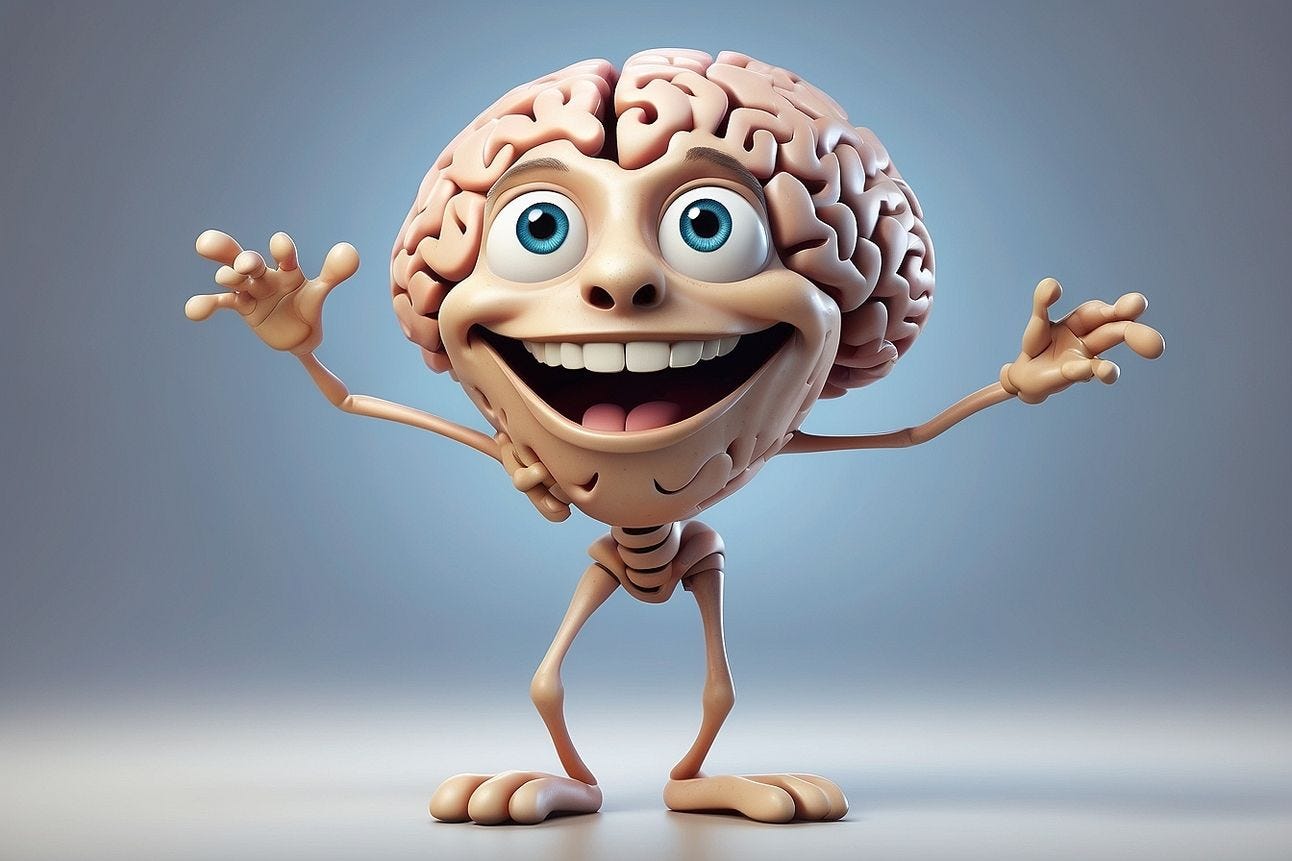Mindfulness is good for your mind….and it won’t hurt your body either!
Mindfulness is certainly a self-help buzz word that can mean lots of different things. For this newsletter, let’s assume it means being present.
Can you relate?
Ritu: “We need paper towels when you go to the store.”
Me: “Okay. I actually noticed that we needed them a few days ago. I think I’ll try another brand. Bounty is overpriced and, honestly, it’s full of harmful chemicals.”
Ritu: “Please don’t get cheap paper towels.”
Me: “Okay.”
Three hours later, I go to the store and purchase everything that I assumed we needed. I triumphantly arrive home.
Ritu: “Did you get the paper towels?”
Me: “I didn’t know we needed paper towels.”
Ritu: “Of course not.”

I didn’t forget that we needed paper towels. I simply never knew. Sure, Ritu told me to get them. Sure, I participated in a conversation about paper towels and even shared an unsolicited opinion about the excessive cost and potential toxicity of one of America’s favorite brands.
Nonetheless, I was not mindful. For all intents and purposes, I wasn’t there. Our brains take in thousands of bits of information per second and, thankfully, filter most of it out. On autopilot, I completely detached from the paper towel conversation that I was actively having with Ritu.
Mindfulness is all about being present in this moment.
It’s not just about bringing home paper towels.
Sure, had I been fully present during my conversation with Ritu, I wouldn’t have let her down and we could have happily went about our business, wasting countless Bounty towels. But, practicing mindfulness is much more useful.

There is only now. The past is behind you and the future hasn’t arrived.
Being mindful, being in the moment, significantly reduces stress and anxiety. When you’re focused on the present moment only, you’re not paying attention to yesterday’s regrets or to tomorrow’s worries.
That’s great, but WHAT IS MINDFULNESS? Well, that depends on who you ask. There are several variations of the standard definition of mindfulness. One our favorites comes from Healthline: “Mindfulness is a practice of gently focusing your awareness on the present moment over and over again. It involves focusing on sensations to root yourself in your body in the here and now. It can be practiced during formal meditation or during everyday activities like cooking, cleaning, or walking.”
WELLNESS TIP: Try mindful eating. Don’t eat in front of the TV or computer. Chew each bite at least fifteen times and focus on the taste, texture and aroma of your food.

Maybe avoid these food choices…
WHAT’S THE SCIENCE? According to the American Psychological Association over 200 studies show that mindfulness therapy helps reduce depression and anxiety. Mindfulness can help alleviate pain, smoking and other addictions, and might even boost the immune system.
What does mindfulness do to your brain?

In her book The Source neuroscientist Tara Swart says that “(brain) scans on people who use mindfulness meditation show significant neuroplastic changes in their brains.”
According to Physiopedia neuroplastic changes or neuroplasticity “refers to the lifelong capacity of the brain to change and rewire itself in response to the stimulation of learning and experience.”
In other words, your brain can change, for the better, and mindfulness will help make that happen.
Swart says that consistent meditation, a method of mindful practice, increases folding in the brain and its surface area. These changes take place in the area of the brain that controls processing data for the outside world, the cerebral cortex.
She believes that meditation, just a few minutes each day, “will give you a new clarity of perspective on what and who are your real priorities in life, while supporting your higher level brain regulation and improving your resilience, making you more considered and balanced in your approach.”
Our Thoughts:
Practicing mindfulness is a no brainer(no need to excuse the pun) if you want to improve your brain health and your overall wellbeing. It’s also one of the easiest things that you can do. Simply pay full attention to someone when speaking with them. Meditate for a few minutes. Take a Yoga class. Go for a walk on a sunny day and notice all the things that are around you.
At Envisage Wellness, Ritu Chib-Eiven and Mitch Eiven approach psychotherapy and coaching a little differently. In both areas our objective is to give you the tools to empower you to discover your own healing or your own path toward achievement. This newsletter is designed to be an extension of that effort. We’ll keep it short, helpful and deliver it to your inbox at least twice a month.



